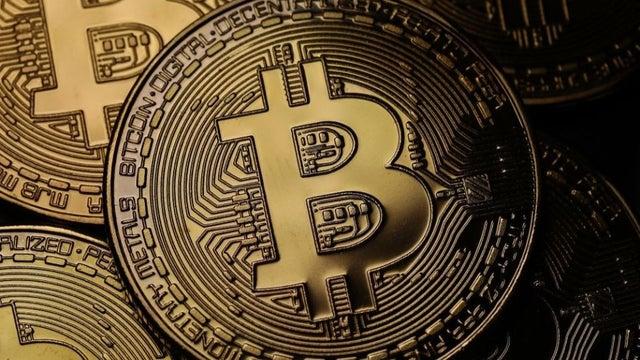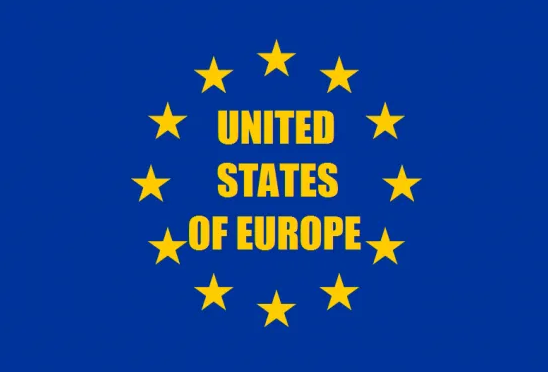Tag Archive: Finance
Reality check: The “miracle recovery” narrative
Over the last few weeks, we’ve been constantly bombarded by news reports and “expert” analyses celebrating an incredible global economic recovery. They’re not even presented as projections or expectations anymore, but as a fact, as though the return to vibrant growth is already underway.
Read More »
Read More »
Precious metals are and always have been the ultimate insurance
As we enter the second quarter of 2021, the year during which so many mainstream analysts and politicians have predicted we’ll see a miraculous recovery from the covid crisis, it is becoming increasingly clear that the damage inflicted by the lockdowns and the shutdowns is really very extensive an persistent. Of course, I’m referring to the damage to the real economy, that is, to actual businesses, households and the countless citizens that were...
Read More »
Read More »
The bitcoin surge in its proper context
Over the last few weeks we’ve been witnessing a historic surge in the Bitcoin price, a seemingly unstoppable ride that the mainstream media headlines can hardly keep up with. Especially following the news that Elon Musks’ Tesla bought $1.5 in the cryptocurrency, sending it to new record highs, most of the media coverage appears to be focused on all the wrong things.
Read More »
Read More »
“The bank and the government have essentially blended into one entity”
A lot has been said and written about the impact of the Covid crisis on the global economy and on the prospects of a strong recovery in 2021. Especially since the start of the year, there seems to be a consensus among government officials, institutional leaders and mainstream market analysts and pundits, pointing to an extremely positive outlook.
Read More »
Read More »
Swiss direct democracy in action
On the last Sunday of November the Swiss citizens once again rejected efforts staged by left-leaning groups and NGOs to chip away at the nation’s long tradition of free enterprise, respect for private property and financial freedom. Two important proposals were brought before the Swiss people in a set of referendums, both targeting private companies and attempting to place unprecedented burdens, threatening their ability to operate freely and...
Read More »
Read More »
The far-reaching impact of the US election
The 2020 election was a roller coaster experience for both sides and for all International observers who understood its massive economic and geopolitical implications for the rest of the West.
Read More »
Read More »
“Gold is Money, Everything Else Is Credit” – J.P. Morgan
By now it is probably obvious, even to the most naive of mainstream narrative followers, that we are well past the point of no return on many fronts. Politics, on a national and global level, are never getting back to “normal”, the economy is already knee-deep in a severe recession, while social frictions and public discontent with governments, institutions and all kinds of rulers and central planners is on a sharp and dangerous trajectory.
Read More »
Read More »
Unless the US stops printing money, the dollar will collapse
Claudio Grass (CG): This crisis has shaken a lot of industries and core functions of the global economy and international trade. How do you assess its impact on the most important part of the machine, the banking system? Do you see risks there that investors should be worrying about?
Read More »
Read More »
“Unless the US stops printing money, the dollar will collapse.”
We’re less than two weeks away from the US election, and yet this sense of utter confusion, bitter political conflict, and economic uncertainty that has been ominously hovering over the nation, as well as the rest of the world, doesn’t seem to have subsided.
Read More »
Read More »
US election: Red flags for investors
Outlook and wider impact. As showcased during the debates and in the entire campaign rhetoric, politicians in the US but also in Europe, are solely focused on promoting solutions that only serve to paper over the problems and address the symptoms of the disease.
Read More »
Read More »
Tyrants Are Waging War Against Their Own Citizens
As [D] Mayor de Blasio shuts down schools and restaurants in NYC yet AGAIN, and as cops in Australia arrest women on beaches for traveling outside of 5 KM from their homes, it’s clear that tyrants around the world are openly waging war against their own people. Claudio Grass joins me to discuss.
Read More »
Read More »
We don’t have to kill the king, if we just can ignore the king
“The right of self-determination in regard to the question of membership in a state thus means: whenever the inhabitants of a particular territory, whether it be a single village, a whole district, or a series of adjacent districts, make it known, by a freely conducted plebiscite, that they no longer wish to remain united to the state to which they belong at the time, but wish either to form an independent state or to attach themselves to some...
Read More »
Read More »
“The U.S. economy felt like a balloon in search of a needle” – Part II
In this surreal policy environment, how has the role and the investment process of the value investor evolved, especially over the last decade? How can one still identify value in a world of subsidized binge borrowing, extreme indebtedness, and stock buybacks?
Read More »
Read More »
“The U.S. economy felt like a balloon in search of a needle” – Part I
As we move deeper and deeper into this covid crisis, more and more people understand that there’s a lot more to fear besides the disease itself. As the economic impact and the full scale of the damage caused by the lockdowns and the shutdowns become undeniable, there are too many questions lacking any sort of convincing answer and the future for so many employees, business owners, investors and ordinary savers seems bleak and uncertain.
Read More »
Read More »
You cannot print your way to prosperity – Part II
Looking at the damage inflicted upon supply chains, production facilities and global trade in particular, how quickly could these operations snap back even if all COVID-related restrictions were lifted tomorrow? Do you think we’ll eventually get back to business as usual, or have we now experienced a permanent shift to a “new normal”?
Read More »
Read More »
Gold doing what it does best – Part II
While the economic forces that drive this rush to precious metals are clearly understandable, there are other, deeper and less obvious factors that must also be taken into account. This “fear of uncertainty”, which pushes demand for gold higher as it has done so many times in the past, is different this time.
Read More »
Read More »
A blueprint for a European superstate
After intense negotiations, long days and nights of clashes and a distinctly sour note underlying the entire summit, European Union leaders finally agreed on an unprecedented 1.82 trillion-euro ($2.1 trillion) budget and COVID recovery package.
Read More »
Read More »
Is the West repeating India’s mistakes?
Following the publication of our last conversation with Jayant Bhandari, I received a lot of interesting feedback and remarks. The common denominator of all those comments was the astonishment of many Western readers at the real conditions and dynamics on the ground in India.
Read More »
Read More »




































